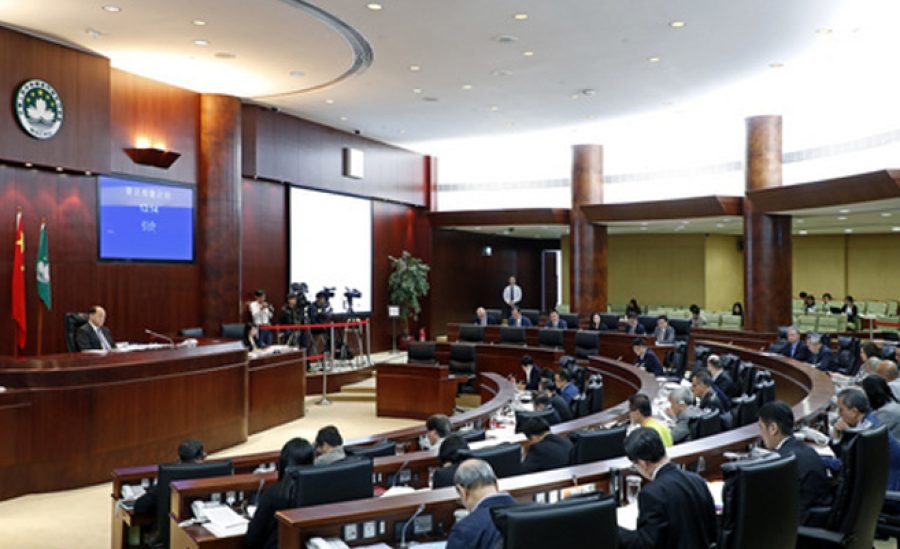The Legislative Assembly (AL) Wednesday passed a government-initiated bill regulating the city’s finance leasing sector, with the aim of promoting its development.
Yesterday’s plenary session also passed a bill on tax benefits encouraging the establishment of finance leasing firms.
The two bills will come into effect the day after their respective promulgations in the Official Gazette (BO).
The outlines of the two bills were passed during a plenary session of the legislature in May last year. The legislature’s 2nd Standing Committee held several meetings to review each of the two bills.
Secretary for Economy and Finance Lionel Leong Vai Tac and Macau Monetary Authority (AMCM) President Benjamin Chan Sau San attended the plenary session when the two bills were voted on article-by-article in their final readings.
The finance leasing law will replace a decree-law on finance leasing which came into force in 1994, while the finance leasing tax benefits law will replace a law which was passed by the legislature under the city’s then Portuguese administration in 1994.
According to the finance leasing law, a finance leasing company must hold a capital of at least 10 million patacas, a change from the 30 million pataca requirement stipulated by the finance leasing decree-law dating back to the early 1990s.
Under the new law, a finance leasing company is defined as a financial institution, as opposed to the current situation in which this kind of company is defined as a credit institution. The government has said that its regulation on financial institutions is less strict than on credit institutions.
According to the new law, the Macau Monetary Authority can reject anyone who has been convicted of – or is facing charges of – certain crimes to become a major shareholder of a finance leasing company, such as money laundering, terrorism-related crimes, document forgery, theft, robbery, fraud, extortion, abuse of trust, usury, bribery, and the issuing of bounced cheques.
According to the finance leasing tax benefits law passed yesterday, for the purchase of a real-estate unit used for a finance leasing business, the company does not need to pay property transfer stamp duty.
Under the current stamp duty system, for the purchase of all kinds of immovable properties, a buyer has to pay stamp duty of one percent of a property’s declared value which is below two million patacas, while the stamp duty rate is two percent for a property valued at between two and four million patacas. The rate is three percent for a property worth more than four million patacas.
According to the new law on finance leasing tax benefits, only one such unit can enjoy the stamp duty exemption. The maximum of the amount of the exemption is 500,000 patacas.
The new law on finance leasing tax benefits states that, however, if the company sells the real-estate unit within five years after purchasing it, the exemption of the stamp duty payment will become invalid – meaning that the company will then need to pay the relevant stamp duty.(Macaunews)






